"In summary, this project exceeded our expectations from the initial planning phase through the final production results, including surpassing our return-on-investment objectives in the very first year. All of our objectives related to capacity, efficiency, quality and cost reductions were achieved. In fact, within the first 30 days of operation, we hit our first production milestone, reaching the throughput rate (i.e., pounds per hour) that we had established for year end. The early successes boosted our confidence and enabled us to rely on the system to meet expanded production and quality goals", tells Kip Yeates, vice President of Fresh Operations of Wada Farms. 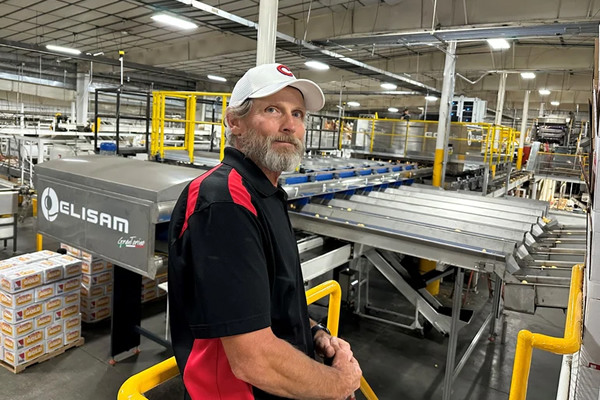
Over the past few years, Wada Farms has faced the following challenges:
- Based on labor availability and overall costs, we strive to enhance production efficiency.
- To meet demanding customer standards, we focused on delivering quality product that was consistently sized and graded.
- In order to avoid false positives and increase returns, grading accuracy needed to improve.
- Sorting by hand is challenging; despite best efforts, humans can overlook details and make unintentional mistakes.
- Mechanical sizing and manual sorting have limitations related to grading, product handling, capacity and the ability to meet ever-changing customer and market demands.
Every challenge creates an opportunity for a solution. This is Wada Farms' story of how optical grading technology changed their business in terms of quality, capacity and labor reduction. Following are just some of the improvements that Wada Farms achieved: Labor related to manual sizing and sorting was reduced by 75%, improved quality consistency and operational flexibility in order to more effectively respond to customer demands, and the grading capacity increased by over 20%.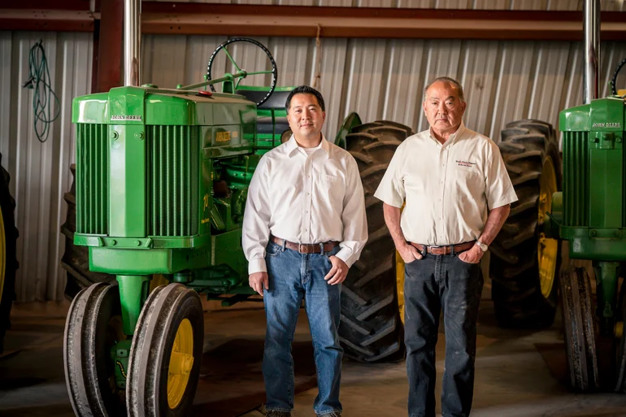
About Wada Farms Wada Farms was founded in 1943 by Frank Wada, who immigrated to the U.S. from Japan in 1922, Wada Farms has become one of the nation's largest suppliers of fresh potatoes, onions, and sweet potatoes. They have strong partnerships across the U.S. and worldwide. Wada Farms offers a one-stop solution for produce buyers and the food service industry, with over 80 years of experience in growing, packing, shipping, and marketing support, all through one partner.
Wada Farms was founded in 1943 by Frank Wada, who immigrated to the U.S. from Japan in 1922, Wada Farms has become one of the nation's largest suppliers of fresh potatoes, onions, and sweet potatoes. They have strong partnerships across the U.S. and worldwide. Wada Farms offers a one-stop solution for produce buyers and the food service industry, with over 80 years of experience in growing, packing, shipping, and marketing support, all through one partner.
A large One-Stop Potato Shop
"We're producing a wide variety of fresh potatoes, including russet, red, brown, and yellow potatoes, in lots of different varieties, shapes and sizes. Additionally, we're creating value-added products like microwave-ready items, easy grillers and tray packs wrapped in oil. Our building is around a couple of hundred thousand square feet, making us somewhat like a big-box store. This diversity allows us to cater to a broad range of retailers throughout the U.S. and in countries around the world."
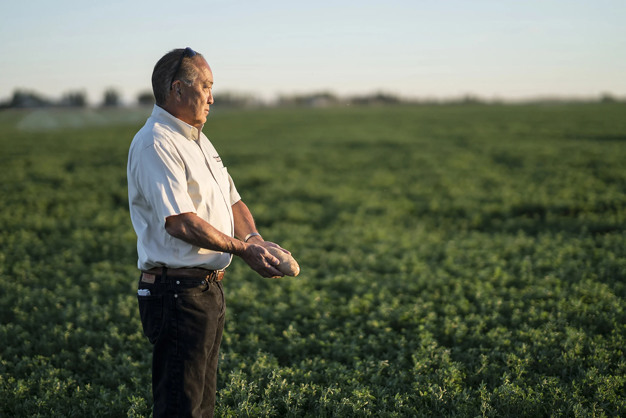
Wada Farms mentions this as the main motivation for choosing Ellips-Elisam: Excellent product handling of different sized potatoes with big volumes, user-friendly grading software with professional training and reliable and efficient grading machine.
"A great start and a bright future"
"Wada Farms has high demands and strict requirements for capital projects, and we have been extremely pleased with the entire project, including design, project management, installation, training and ongoing customer support. The overall project was excellent. The Ellips Group delivered a five out of five-star performance, and we had the pleasure of working with a world-class company. Any challenges that we've faced are hardly a concern because I am confident, we'll tackle them effectively together. I fully expect even improved performance that will support our growth going forward."
Following are just some of the improvements that Wada Farms achieved:
- Labor related to manual sizing and sorting was reduced by 75%.
- Improved quality consistency and operational flexibility in order to more effectively respond to customer demands
- Increased grading capacity by over 20%.
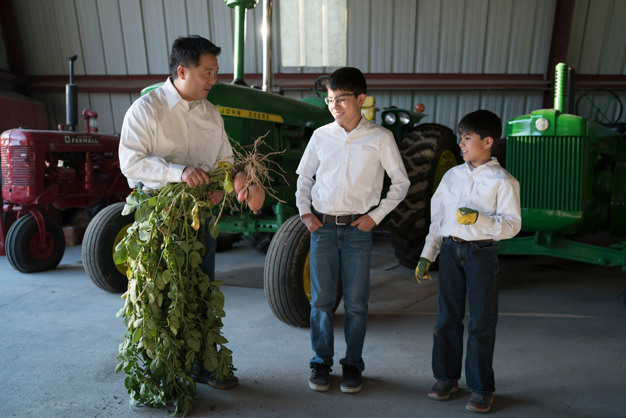
Increasing capacity while reducing labor
"We've really enjoyed being at the forefront of this technology—it's been amazing. Our grading accuracy has enabled us to optimize the value of each potato, while our ability to provide precise sizing for our customers has greatly improved. We've exceeded our capacity expectations. In summary, we met all of our goals from the initial planning to the final results which enabled us to achieve our return on investment in the very first year. We outperformed all our estimates. In fact, within the first 30 days, we reached the throughput rate that we targeted following a year of operation. I was very pleased with that, as the learning curve is generally much steeper. By the end of the first month, we were hitting our target numbers which enable us to reduce our sorting and sizing labor by roughly 75%. We kept a few employees as a safety measure, but overall, our labor demand dropped significantly while our total capacity increased by over 20%. These two metrics—labor reduction and increased capacity increase—are the key numbers we focus on."
Improved quality consistency and flexibility to respond to customer demands
"Ensuring the quality of red and yellow potatoes is essential to meeting the expectations of our customer base. Additionally, achieving precise sizing according to customer specifications is crucial, despite the variability inherent in industry standards. Throughout the year, various defects or quality issues may arise, each presenting its own set of challenges. That's why we are really glad about our investment. Ellips technology ensures significantly enhanced defect detection that leads to greater consistency in quality and the flexibility to fulfil all customer demands."
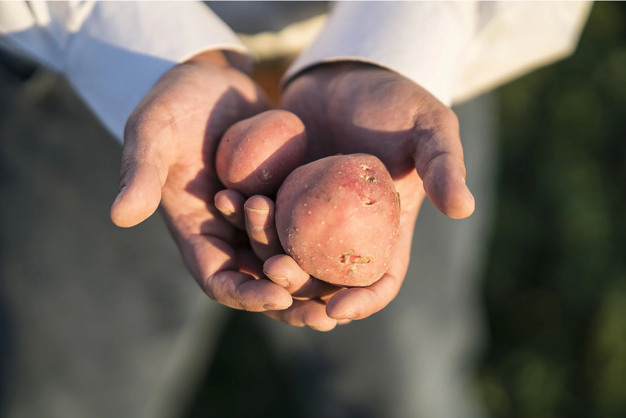
A fresh batch of challenges lies in detecting difficult defects.
High-demand items, like those susceptible to silver scurf or pressure bruising, require special attention. Especially as the storage season progresses. Detecting and addressing bruising is a persistent challenge. It significantly impacts the cosmetic appeal of potatoes, particularly yellow ones. Moreover, identifying subtle defects before they worsen is essential. These include small cracks or early-stage blemishes. As we encounter these new challenges, Ellips is continually able to deliver upgrades that will enable us to tackle them effectively."
Future
"I've heard great things about the development and release of AI for potato grading this summer. We're excited to start testing it. It's like how a self-driving Tesla uses a neural network to learn on the fly. This AI system will also learn in real time, unlike previous models that required pre-uploaded data. This is exciting because the machine learning aspect means it will continually improve, especially with all the cycles it processes. In the Netherlands, they're building the model using a large data set to train it before releasing it for use. This AI will enhance the detection of challenging defects and reduce the need for manual labor, as it's fully automated. That's the goal of Ellips technology, and we are excited about that."

For more information:
John Albert
Ellips
Tel: +1(206)-915-4962
[email protected]
Full customer story Wada Farms
